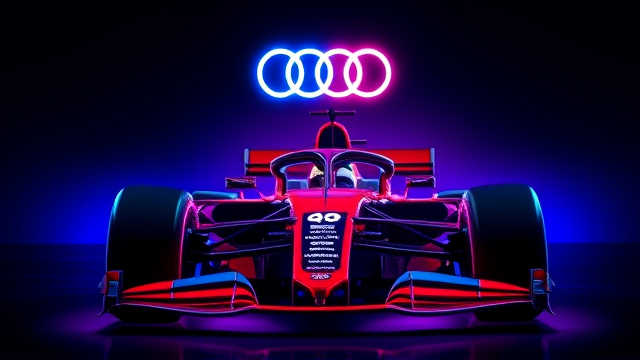Mattia Binotto Compares Audi and Ferrari as Day and Night
In a revelation that sent shockwaves through the Formula 1 paddock, Mattia Binotto, the former Ferrari team principal now steering the Audi F1 project, has drawn a stark comparison between his old and new homes, describing them as 'day and night. ' Having dedicated nearly three decades of his life to the scarlet red of Maranello, a tenure where he knew virtually every employee by name, Binotto’s move to the German manufacturer represents more than a career change; it’s a cultural migration.The Swiss-based Sauber team, whose shares have been fully acquired by Audi, is set to undergo a metamorphosis into a full-fledged factory team, a transition Binotto characterizes not by the raw, unbridled passion that defines Ferrari, but by a methodical, Teutonic precision. 'Here, it’s not just about passion,' Binotto explained, pinpointing the core distinction.'There is a plan that needs to be realized. There is something Audi is exceptionally good at – planning.' This foundational difference in philosophy is the crux of his analogy. At Ferrari, the atmosphere is often described as a pressure cooker, a relentless pursuit of immediate glory fueled by a rich, emotive history that can sometimes overshadow long-term strategy.The 'day' of Audi, by contrast, is one of calculated, incremental progress, a corporate marathon rather than a passionate sprint. Their stated goal is to win the championship by 2030, a timeline that acknowledges the long and arduous path ahead but is underpinned by a confidence in structured, annual progression.This methodical approach is a hallmark of German engineering and corporate culture, reminiscent of the disciplined, data-driven systems that propelled Mercedes to its era of dominance. For Binotto, this new environment is a world of discovery.After 30 years immersed in the intense, family-like, and sometimes insular world of Ferrari, he is now in a phase of learning, absorbing the nuances of a new corporate culture and its people—a process he finds genuinely enjoyable. This shift from a known entity to a new frontier highlights a broader trend in modern F1, where the blend of historic, passion-driven teams like Ferrari and Williams with the calculated, corporate might of automotive giants like Audi and Mercedes creates a fascinating dichotomy.The success of this Audi venture hinges on whether this methodical 'day' can eventually outshine the fiery, historic 'night' of Ferrari, a battle of philosophies that will be fought not just on the track, but in the very heart of each organization's identity. It’s a narrative akin to a footballing rivalry, say, Barcelona's tiki-taka possession philosophy versus a direct, counter-attacking powerhouse, where the system and long-term vision are just as critical as the individual moments of brilliance. Binotto’s journey is thus a high-stakes case study in sports management, testing whether meticulous German planning can be successfully grafted onto the high-octane, unpredictable world of Formula 1 to ultimately capture the sport's greatest prize.
Latest News
The Miami Dolphins' season continues to unravel in spectacular fashion, with quarterback Tua Tagovailoa's postgame comments following Sunday's 29-27 loss to
2 minutes ago0 comments
In a stunning twist of fate that will be debated in Russian hockey circles for years, SKA Saint Petersburg snapped Avtomobilist Yekaterinburg's formidable
12 minutes ago0 comments
In a dramatic Monday night showdown that will be debated in KHL taverns for years, SKA St.
17 minutes ago0 comments
In a move that feels less like a routine practice squad addition and more like a calculated chess play, the New York Giants are strategically reuniting rookie
22 minutes ago0 comments
The full-time whistle at Windsor Park provoked a complex symphony of emotions that perfectly encapsulated Northern Ireland's heartbreaking yet heroic 1-0
37 minutes ago0 comments
The Tennessee Titans' decision to fire head coach Brian Callahan on Monday, with the team mired at 1-5, was not a sudden shockwave but the inevitable
47 minutes ago1 comments
The beautiful game, so often a theater of dreams, once again finds itself an unwilling stage for the world’s most intractable conflicts as the Italian national
1 hour ago0 comments
The ice was absolutely electric last night, folks, as the NHL’s regular season continued to deliver the kind of drama we live for.
1 hour ago0 comments
It’s quiet here...Start the conversation by leaving the first comment.
